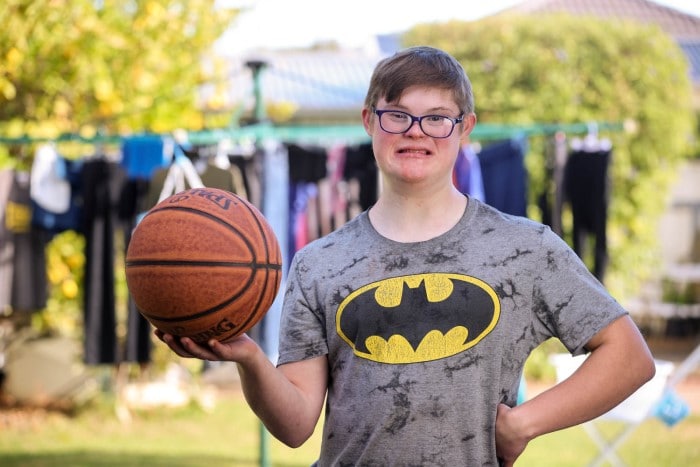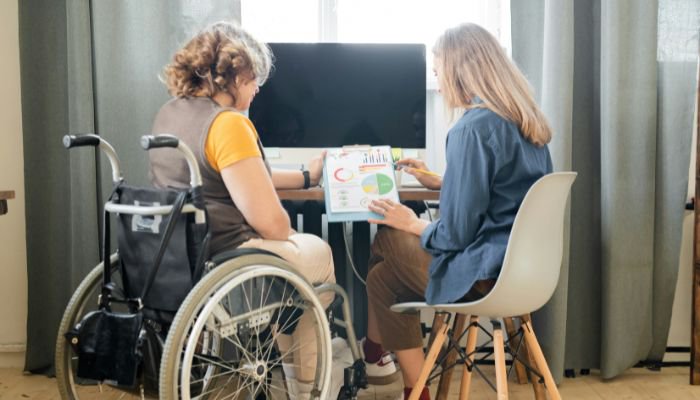
The capacity building budget contains nine support categories that all are aimed helping you to be more independent and live your best life. The other two types types of budgets are core supports and capital supports, and they cover expenses related to your day-to-day care and equipment or modifications. Together, these three supports budgets help you work toward the goals in your NDIS plan.
The NDIA will assess your needs during your planning meeting or plan review meeting to determine what capacity building supports might be considered reasonable and necessary. Your planner or LAC will use your short- and long-term goals listed in your NDIS plan to fund supports to achieve those goals and live a more independent life. For example, if one of your goals is to develop your skills in cooking and healthy diets, your plan might include the 'increased social and community support' budget to fund cooking classes.
Your goals are very important in determining what you can purchase out of your capacity building support budget as it’s not flexible like the core support budget. You can find out more about NDIS plans in NDIS category confusion and NDIS Dictionary: Breaking down the jargon.
Read on to learn about the categories that make up the capacity building support budget.
You can claim support coordination services from this budget. Support coordinators help you put your plan in action and organise your supports. They can help you to build connections with the community and broader systems of support; develop and design support options to help you work towards your goals; and work with you to prepare for review and report on what you’ve achieved. Read our tips for choosing a support coordinator that's right for you.
This funding is for help for you to find suitable accommodation to live more independently, and could cover someone to assist you with inspecting properties or negotiating your contract. Supports may including assistance with applying for a rental property, meeting tenancy obligations and ensuring the home is appropriate for your needs.
This is to pay for support to help you build your skills in accessing the community. This may include funding a mentor or therapist to assist with learning skills for independence in the community.
This category of funding can be used to pay for tuition fees, art classes, sports coaching and similar activities that build skills and independence. You can use this category to pay for camps, classes and vacation activities that have capacity-building components. Activity-based transport is also included.
Funding to support you to find a job and have assistance in your work. This budget can pay for a support worker to assist you at your job or helping you to find a job that’s right for you, including on-the-job training to assist you manage the demands of the job.
Other options may include life and work coaches, private recruitment specialists, career counsellors and employment mentors.
Supports to help build your skills to connect and build relationships in your community. This could include funding to pay for someone to help you build your social skills or behavioural therapy services.
Services that improve your health and wellbeing, like a personal trainer, exercise physiologist or dietitian to improve your skills in maintain your own health and wellbeing.
Access to services that will help you to transition from school to further education. This budget could fund a support worker to help you to go to university or TAFE.
This budget pays for your plan manager. All you need to do have funding for a plan manager is request it in your planning or review meeting. Your plan manager will take care of all the financial administrative work from your NDIS plan and if they are a good plan manager, they will have handy technology and a team of NDIS experts to help you get the most out of your NDIS plan. Find out more about what a plan manager does.
Funding to cover your therapies and other programs to build your capacity to reduce the impact of your disability. This could be a physiotherapist, speech pathology, occupational therapy or any other therapy that assists you to become more independent with your daily living tasks.
The NDIA has recently announced that the three support budgets (core, capital and capacity building) will eventually be replaced with only two types: fixed and flexible. These changes will be phased in from the later half of 2021, as current plans end and new plans start. So if you are due for a new plan, expect it to be in the new format of fixed and flexible. Read more in Coach Amelia's explanation on Kinora.
To find out more about the other types of funding or other NDIS lingo check out NDIS Category Confusion or NDIS Dictionary: Breaking down the jargon.
If you have any queries about how to use your funding please contact us via phone or email and we will be more than happy to assist.



